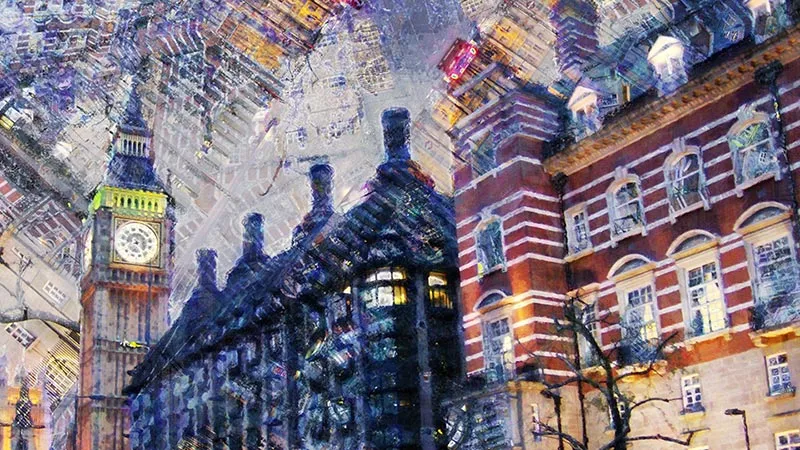-
CENTRES
Progammes & Centres
Location

In voting in favour of Brexit, the United Kingdom's people have delivered the biggest shock to the international system since the global financial crisis of 2008. To some degree, there is a continuum. The world, especially Europe and the West, has still not recovered from the economic meltdown that followed 2008. It has cost many countries, including the UK, jobs, hopes and GDP growth. The political consequences of this are still playing out, and the Brexit vote was one example.
A lurch towards protectionism and a rise in nativist identity and sentiment — not necessarily xenophobia, as some commentators have insisted, that being a far more extreme and toxic emotion — has been apparent in many European countries, in the UK and frankly in the United States as well. As the US election campaign has shown us, the appetite for free trade is at a low. The persistent mess in the Middle East, with the resultant inflow of refugees to Europe, has only exacerbated matters. The Brexit vote came at the intersection of all of these forces and at just the right or wrong, depending on how one sees it — time. When Prime Minister David Cameron decided to go ahead with the referendum, he may have thought that with his victory in the 2015 general election and with Britain's economy actually recovering a little faster than much of Europe, he was safe, and the "remain" camp would win. Yet in the end, raw sentiment trumped rational economics. Of course in a democracy, both positions are perfectly legitimate.While a single-issue referendum with a binary yes-no answer will inevitably appear to be polarising, the fact is the Brexit vote covered a range of motivations. In this interconnected world, where a potential break-up of the European Union has been enough to have stock market indices tumble in Mumbai, the experience of India and Indians and Britons of Indian origin is indicative of the multitude of thoughts and urges and impulses that went into the Brexit drama.
As a government and a foreign policy establishment, India had no real dog in the fight. It has never quite understood the strategic coherence of the EU as a political entity — as opposed to a common market. New Delhi has preferred bilateral relations with individual European capitals, whether London, Berlin or Paris. In a sense, this was analogous to those in the "leave" segment in Britain — not to speak of those representing the growing anti-Brussels mood in many European countries, from France to Spain — who have felt the EU didn't really represent them and their sensibilities, and that a trade facilitation mechanism had gone simply too far. There were other Indians, primarily the white-collar executives in the City, the financial district of London, and in the IT and biotech sectors or in academia, who had moved to Britain in the past 20 odd years — in the period of a "Cool Britannia", anchored in Europe. They were horrified by the idea of a Brexit and voted against it, as did their peers from white or other ethnic backgrounds. This is the educated, cosmopolitan elite that is a product of the globalised world and has fully used the benefits of free movement from London to cities and countries across the Channel.Older-generation Indians as well as Indians from outside the background described above seemed to be more willing to listen to the "leave" slogan. These included Gujarati and Punjabi migrants from an earlier age, who have seen eastern European migration, from Poland and Bulgaria for instance, displace them in the low-skilled job market. Again, this mirrors white sentiment in similar socio-economic groups, especially in the old industrial towns of northern England, with high working-class unemployment.
Finally, there are those who have used Britain as a base for doing business across the EU. Many global corporations are in this situation and understandably they are mortified. Of the 800 Indian companies that have invested in Britain, a few dozen have genuine cause for concern, whether the IT companies that work with the British financial services industry or Jaguar Land Rover, now owned by Tata Motors. Most of the other Indian companies ostensibly based in Britain are shell operations, designed to round-trip money or funnel family investments into the London property market.What happens next? By October, Britain will have a new Prime Minister who will negotiate the terms of divorce with the EU. There will be calls to maintain a strong and fairly open trade relationship with Europe — which accounts for 40-45 of British exports, though with a declining trend line. The easy entry of high-skilled workers for valuable businesses in financial services or even for the English Premier League — EU worker-movement freedom had allowed British football teams to use an unlimited number of European players — will need to be sorted out. Perhaps a suitable work-permit regime will be required to be instituted.
The integrity of the UK and the EU will face further challenges. The demand for a second Scottish independence referendum, two years after the previous one was defeated, is inevitable. In Europe, there will be pressure on the EU to rewrite some of its rules, deemed inflexible by sceptics, and to negotiate with aggrieved members demanding greater fiscal autonomy or visa and human-mobility exemptions. Five hundred years after Henry VIII's Brexit, Britain has once again anticipated a cultural reinvention of Europe. The question is: is the EU up for its very own Reformation? This commentary originally appeared in NDTV.The views expressed above belong to the author(s). ORF research and analyses now available on Telegram! Click here to access our curated content — blogs, longforms and interviews.